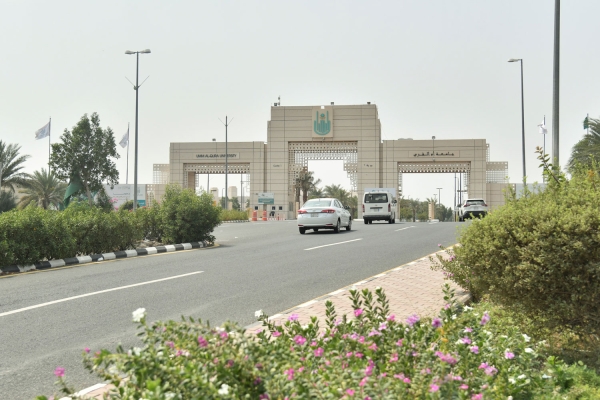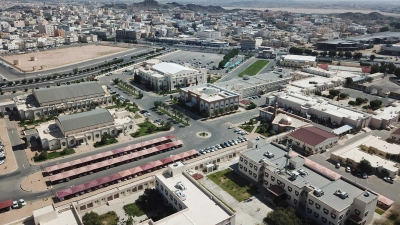
Sheikh Jamil Khokair Chair on Colon Diseases and Cancer of the Rectum

Sheikh Jamil Khokair Chair on Colon Diseases and Cancer of the Rectum is a scientific research chair affiliated with Umm al-Qura University. It is funded by Sheikh Jamil Bin Abdulrahman Khokair, with an estimated budget of SAR5 million and a duration of five years. The chair was established in 2010 as part of the university's research chairs program, aiming to increase awareness of these diseases in response to the increasing number of cases in the Kingdom of Saudi Arabia, particularly among younger age groups.
Vision and mission of Jamil Khokair Chair
Through the Sheikh Jamil Khokair Chair on Colon Diseases and Cancer of the Rectum, the university seeks to be a means of conducting clinical, field, and laboratory research that enriches scientific progress, leads to understanding the disease, its causes and methods of treatment, and the identification of diseases that affect the colon and rectum.
The chair's mission is to contribute to leveraging scientific resources, including laboratory facilities and human expertise, to enhance disease diagnosis, treatment, and prevention through evidence-based research and studies.
Objectives of Jamil Khokair Chair
The chair aims to identify the best methods for combating and preventing colorectal cancer, understanding its prevalence, and examining the relationship between dietary and health practices and this disease. It also seeks to explore methods for early detection and investigate genetic molecular biomarkers that predict the disease in individuals with colon conditions.
Additionally, the chair aims to publish research on the prevention, early detection, and treatment of colorectal diseases, identify treatment methods, monitor advancements in global technology, and increase public awareness about the importance of early screening and preventive measures. It also focuses on educating the community about available medical centers for these purposes and assessing genetic molecular biomarkers to predict and respond to chemotherapy in affected people.
Related quizzes

